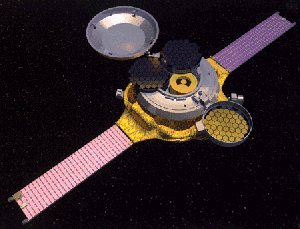This is an artist's rendition of the Genesis spacecraft.
Click on image for full size
Courtesy of NASA
In the Beginning...
News story originally written on July 18, 2001
On July 30, 2001, NASA is set to launch the next of its robotic
space missions: The Genesis mission. The Genesis spacecraft will orbit
the Sun and collect particles that make up the
solar wind.
These particles will be taken back to earth by the spacecraft, then passed to a helicopter in mid-air because they are too fragile for a parachute landing. Scientists will then study these particles to see what exactly the solar wind is made of. Once they know this, they will be able to understand more about what the Sun is made of and how the Sun was born! Cool!
You might also be interested in:
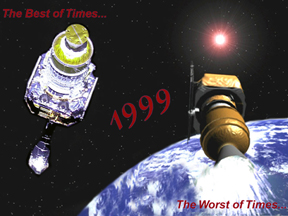
It was another exciting and frustrating year for the space science program. It seemed that every step forward led to one backwards. Either way, NASA led the way to a great century of discovery. Unfortunately,
...more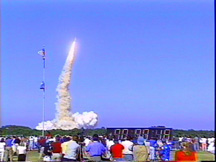
The Space Shuttle Discovery lifted off from Kennedy Space Center on October 29th at 2:19 p.m. EST. The sky was clear and the weather was great. This was the America's 123rd manned space mission. A huge
...more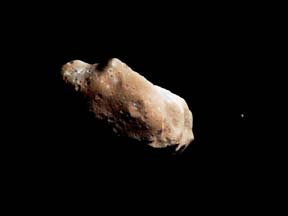
Scientists found a satellite orbiting the asteroid, Eugenia. This is the second one ever! A special telescope allows scientists to look through Earth's atmosphere. The first satellite found was Dactyl.
...more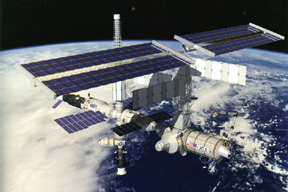
The United States wants Russia to put the service module in orbit! The module is part of the International Space Station. It was supposed to be in space over 2 years ago. Russia just sent supplies to the
...more
A coronal mass ejection (CME) happened on the Sun last month. The material that was thrown out from this explosion passed the ACE spacecraft. ACE measured some exciting things as the CME material passed
...more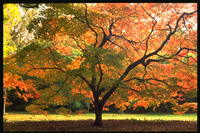
Trees and plants are a very important part of this Earth. Trees and plants are nature's air conditioning because they help keep our Earth cool. On a summer day, walking bare-foot on the sidewalk burns,
...more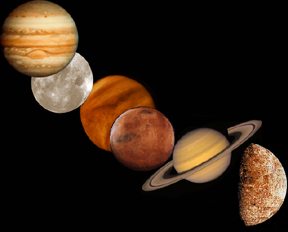
There is something special happening in the night sky. Through mid-May, you will be able to see five planets at the same time! This doesn't happen very often, so you won't want to miss this. Use the links
...more


